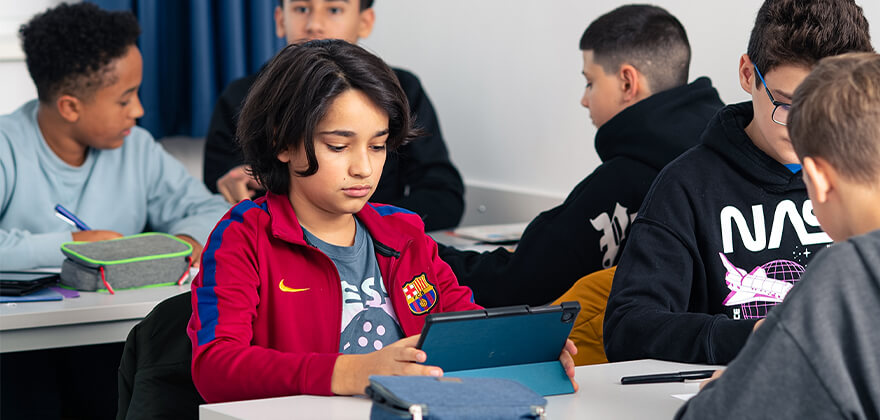
Building a Learning Environment at Home
In the realm of education, the classroom has long been revered as the primary setting for learning. However, the concept of learning extends far beyond the confines of school walls. Home, often referred to as the first school, plays a pivotal role in shaping a child's educational journey. Building a safe and supportive learning environment at home is not just desirable; it's essential.
Encouraging Time Management and Organization
One of the most valuable skills parents can instil in secondary school students is effective time management and organisation. Help your child create a structured schedule that balances academic study sessions, extracurricular activities, and leisure time. Teach them to prioritise tasks, set realistic goals, and break down larger assignments into manageable chunks. Provide tools such as planners, calendars, and digital apps to help them stay organised and on track.
Establishing a Supportive Study Environment
A conducive study environment is essential for academic success. Designate a quiet, well-lit area in the home where your child can focus on their studies without distractions. Ensure they have access to necessary materials, such as textbooks, notebooks, and stationery. Personalise the space with motivational quotes, inspiring artwork, or plants to create a welcoming atmosphere that encourages productivity and concentration.
Fostering Open Communication and Support
Maintaining open lines of communication is crucial for building a supportive relationship between parents and their children. Encourage your child to express their thoughts, concerns, and academic goals freely. Actively listen to their needs and offer guidance, encouragement, and reassurance when needed. Celebrate their achievements, no matter how small, and provide constructive feedback to help them grow and improve.
Promoting a Healthy Study-Life Balance
While academic excellence is important, it is equally vital to promote a healthy study-life balance for students. Encourage regular breaks, physical exercise, hobbies, and social activities to help them recharge and rejuvenate. Model healthy habits by prioritising your own well-being and demonstrating the importance of relaxation and self-care. Emphasise the value of pursuing interests outside of academics and encourage your child to explore their passions and talents.
Leveraging Technology for Learning and Engagement
Technology can be a valuable tool for enhancing the learning experience of students. Encourage the use of educational resources, online tutorials, and digital platforms to supplement their studies and explore new topics. However, it is essential to monitor screen time and ensure that technology is used responsibly and in moderation. Set boundaries around device usage and encourage offline activities that promote creativity, critical thinking, and interpersonal skills.
Cultivating a Growth Mindset
Encourage your child to adopt a growth mindset, which emphasises the belief that abilities and intelligence can be developed through dedication and effort. Teach them to embrace challenges, learn from failures, and persist in the face of setbacks. Encourage a positive attitude towards learning, curiosity, and a willingness to step out of their comfort zone. Celebrate their progress and encourage a sense of resilience and perseverance in pursuit of their goals.
We hope this article helps you build a safe and supportive learning environment at home. If you want to find out more about Mentora Gymnasium, you can make an appointment and visit our school or take part in one of the regular open days we host.
